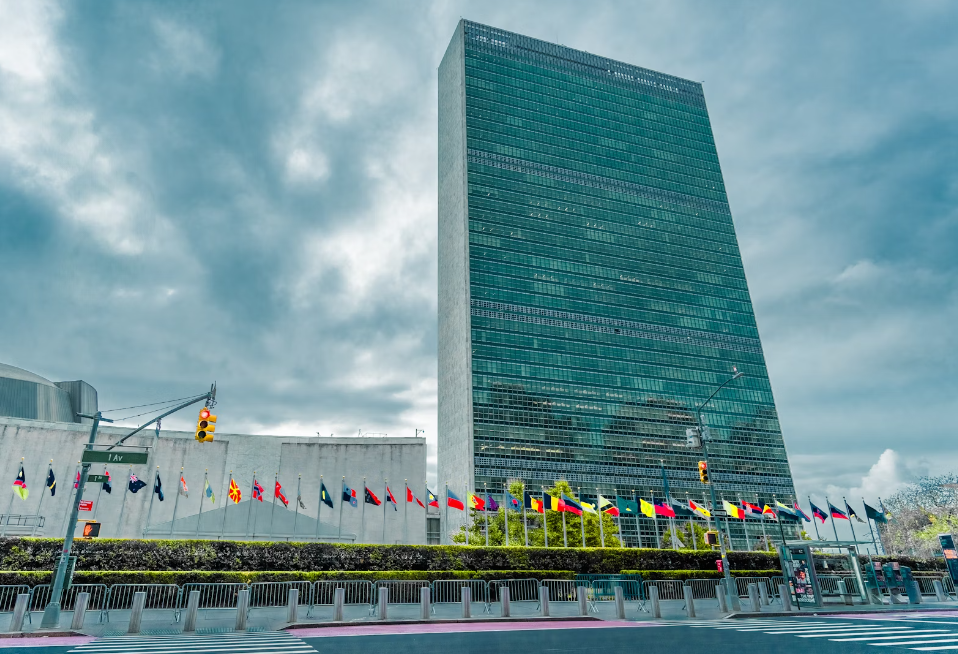A Pivotal Moment for Global Health: UNGA High-Level Meeting on AMR and the 2024 Political Declaration

Two weeks ago, the UNGA High-Level Meeting on AMR culminated in a political declaration, marking eight years since the inaugural meeting on this critical issue. Hear from Dr. Lesley Ogilvie, Director of the Global AMR R&D Hub Secretariat, as she reflects on the outcomes of this declaration.
October 2024 | Author: Dr Lesley Ogilvie, Director of the Global AMR R&D Hub Secretariat
On September 26, 2024, in New York, the United Nations General Assembly adopted a new political declaration on Antimicrobial Resistance (AMR). This declaration, resulting from months of complex negotiations among 193 countries, marks a significant milestone in the global response against AMR, offering both a sigh of relief and a renewed sense of urgency. The stakes could not be higher—AMR threatens lives, livelihoods, and ecosystems worldwide, with the poorest and most vulnerable populations feeling its impacts most severely. Without decisive action, an estimated 39 million more lives could be lost between 2025 and 2050. The decisions made now will shape the global AMR response for decades, presenting both hope and challenges.
At the core of this declaration is a clear, measurable target: a 10% reduction in mortality due to AMR-by 2030. This target provides countries with a shared objective, a focal point around which governments and stakeholders, from industry to civil society, can unite to drive action across all One Health sectors. A mortality-reduction target is a first for AMR – similar to those used to mobilise the global health community's response to HIV, tuberculosis and malaria in previous decades. However, to ensure the commitments move beyond the aspirational we need to have sufficient financial investment and mobilize the necessary resources to support AMR action at all levels, especially in low- and middle-income countries, where the impacts of AMR are often felt most acutely.
Another important component of the declaration is the mandate to create an independent science panel for AMR, potentially modelled after the Intergovernmental Panel on Climate Change (IPCC). This panel promises to bring greater accountability, transparency, and scientific rigor to AMR policy. It could be a game-changer, helping turn commitments into actionable strategies. An independent body to assess the data and evidence, provide recommendations and monitor progress, could elevate global AMR efforts. As a scientist working for an organisation - the Global AMR R&D Hub - that places data and evidence at the core of what we do, I am excited for the next steps. Over the past 5 years – with financial support of the German government – the Berlin-based Hub has built and maintains the Dynamic Dashboard, the most comprehensive repository of information on investments in AMR research and development (R&D) from the public and philanthropic sector (>16,000 projects worth >14.2 billion USD), which has supported many actors in making informed decisions for action.
Research and development – crucial for developing the tools, technologies and strategies we need to mitigate the impacts of AMR – is another area where the declaration offers promise, albeit lacking tangible targets. There is firm recognition of the need to boost R&D for antimicrobials, vaccines and diagnostics, as well as acknowledgement of the important role of public-private partnerships and the private sector in general to move R&D forward. Cross-sector collaboration will be essential for maximizing resources, expertise, and innovation. The need to support incentive mechanisms that separate the costs of R&D from price and volume of sales is highlighted, in particular for new antimicrobials. Importantly, a strong focus was placed on ensuring that there is equitable and affordable access to the tools and other results that the fruits of innovation bring us.
What is clear from the declaration is that AMR is no longer an issue that can be relegated to the sidelines of global health discussions. It has been brought to the forefront, alongside climate change and other threats, as a challenge that requires sustained international cooperation and immediate action. The establishment of a global independent science panel, the focus on measurable outcomes, acknowledgment of both the public and private sectors’ roles in R&D, and a strong push towards accountability are all incredibly important for progress.
As we look forward to the 4th Global High Level Ministerial Meeting in Jeddah this November, the focus is now on turning commitments into action, requiring political will, sufficient financial support and resources, as well as the technical know-how and capacity to implement solutions. There is no time to lose.
We have invited Dr Lesley Ogilvie (Director, Global AMR R&D Hub Secretariat) to share her reflections on the UN High-level Meeting. The article is written from her subjective viewpoint and does not represent the Global AMR R&D Hub or the Global Health Hub Germany.
Image: Nils Huenerfuerst